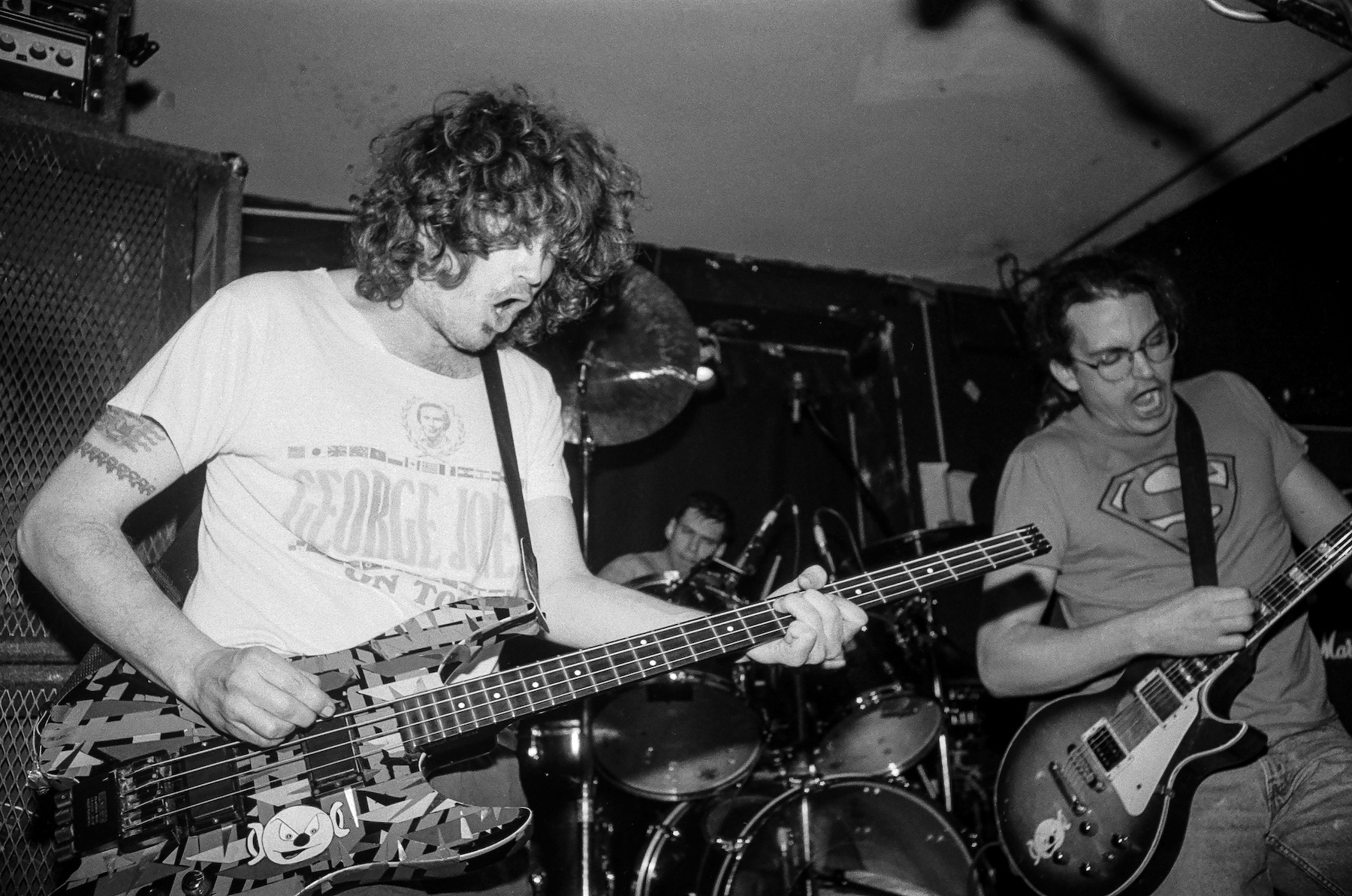
Bassist Cris Kirkwood and drummer Derrick Bostrom met in high school in Phoenix and started their first punk band, Atomic Bomb Club, in the late ’70s. Cris Kirkwood’s older brother Curt joined on guitar and vocals in 1980, and the band eventually named themselves after one of Curt’s songs, “Meat Puppets.”
Coming out of the Arizona desert with a deeply unique mix of hardcore, country, and psychedelic rock, the Meat Puppets signed to Black Flag’s SST Records and were misunderstood misfits, even on a label full of iconoclastic punk bands. Their sound grew more expansive with each release, and 1984’s Meat Puppets II and 1985’s Up on the Sun attracted a critical following, influencing a generation of bands including Nirvana, Pavement, and Dinosaur Jr.
More from Spin:
- Outside Lands Welcomes Tyler, Hozier, Doja Cat
- Argentinian TRÍADA Show It Takes Three to Tango
- Flaming Lips, Modest Mouse Turn Back The Clock For Summer Tour
The original Meat Puppets trio went on hiatus after a few years of mainstream success in the 1990s. Curt Kirkwood carried on the name with different lineups until his brother and eventually Bostrom rejoined the band, with the classic lineup releasing its first new album in over two decades, Dusty Notes, in 2019. Up on the Sun was released on March 21, 1985, but is it their very best album?
21. Golden Lies (2000)
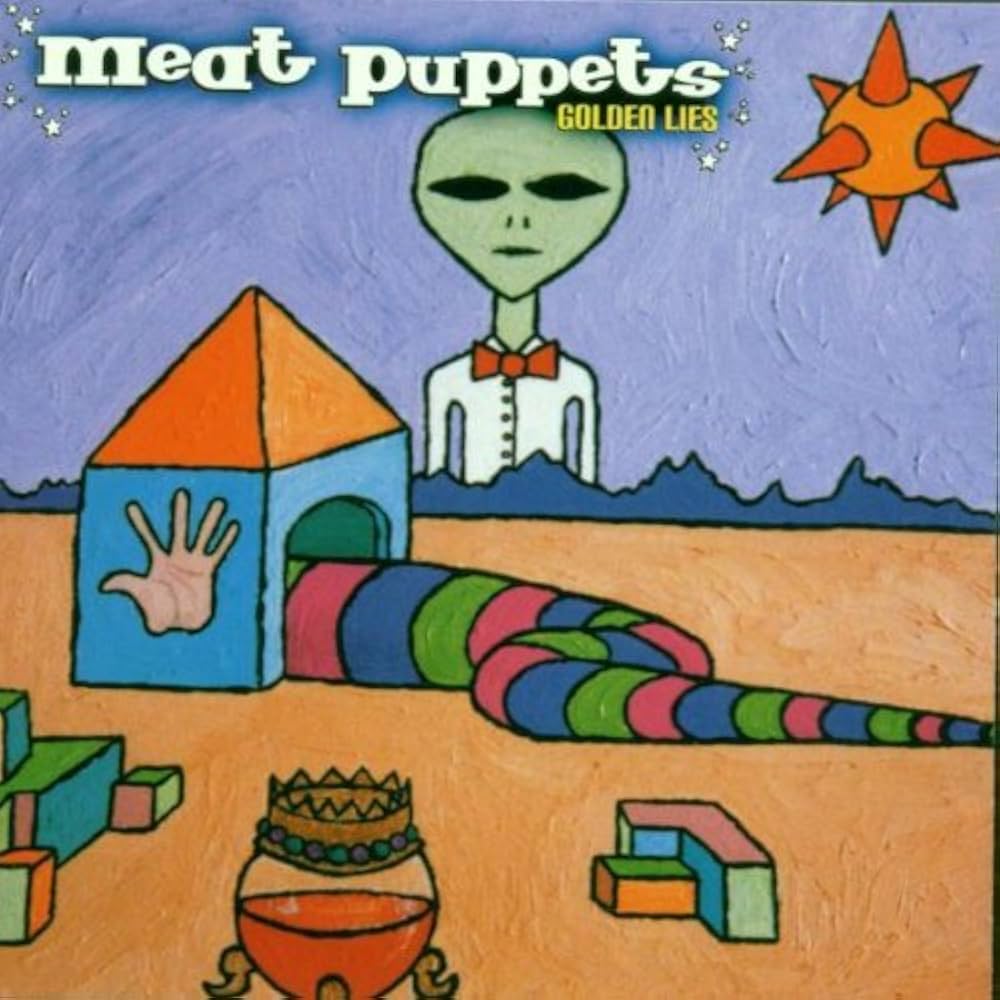
The Meat Puppets’ label, London Recordings, was absorbed into the Universal Music Group in the mergers that consolidated the major labels in the late ’90s, and the band’s contract wound up under Breaking Records, Hootie & The Blowfish’s Atlantic imprint. By this point, the original Meat Puppets trio had frayed while Cris Kirkwood was battling addiction, and Curt Kirkwood had moved to Texas and started a new band, Royal Neanderthal Orchestra. That band, with guitarist Kyle Ellison, bassist Andrew Duplantis, and drummer Shandon Sahm, self-released a 1998 album before re-recording many of its songs under the Meat Puppets name two years later. “Flangers and other flashy effects twirl around at random intervals as if to distract from the inescapable blandness of the songs,” I wrote in my Pitchfork review of Golden Lies.
20. Meat Puppets Live (2002)
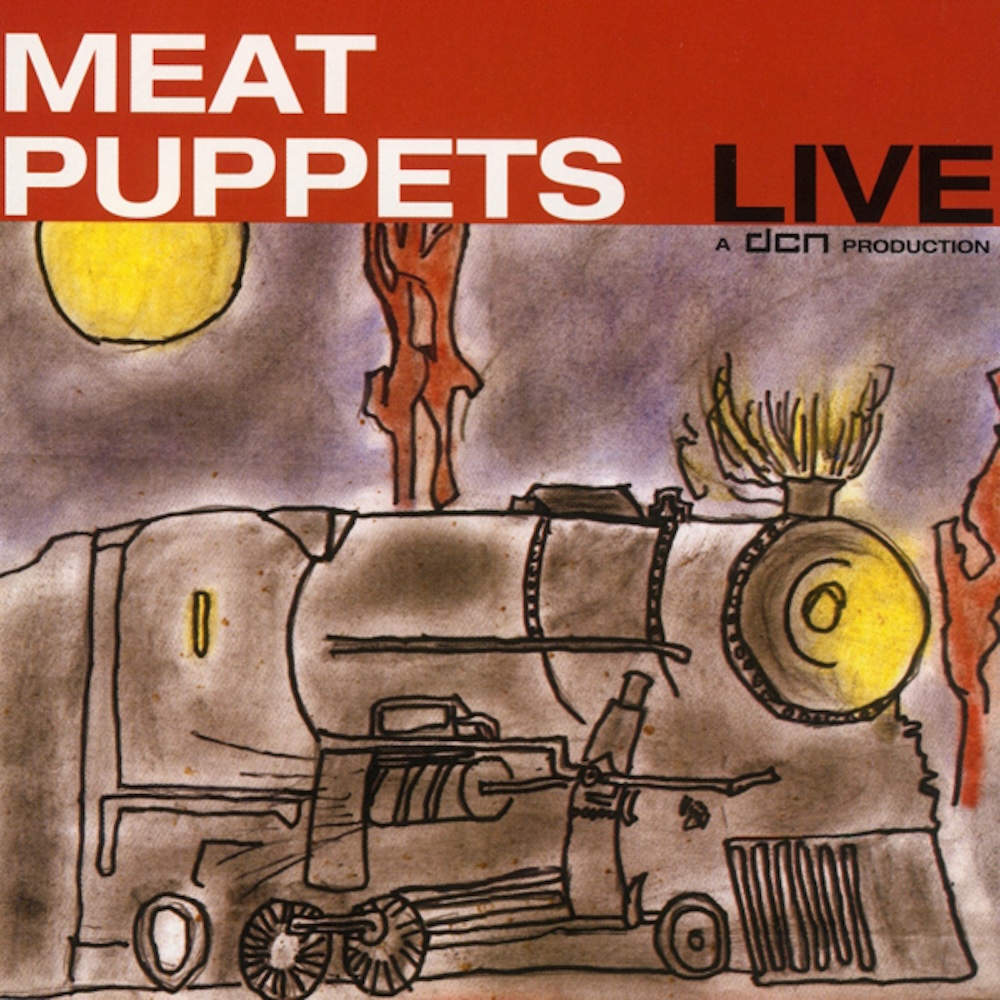
Meat Puppets Live was recorded at two 2001 shows in New Jersey and Vermont during the undistinguished period in which Curt Kirkwood was the only remaining original member. Oldies like “Touchdown King” and “Plateau” sound good on Live, but too much of the setlist is from Golden Lies, along with one Royal Neanderthal Orchestra song that didn’t make it onto a Meat Puppets studio album, the catchy “Way That It Are.” The Meat Puppets went inactive for a few years after the band’s 2002 tour ended, and Curt Kirkwood teamed with members of Nirvana and Sublime for the supergroups Eyes Adrift and Volcano, and recorded a solo album.
19. In A Car EP (1981)
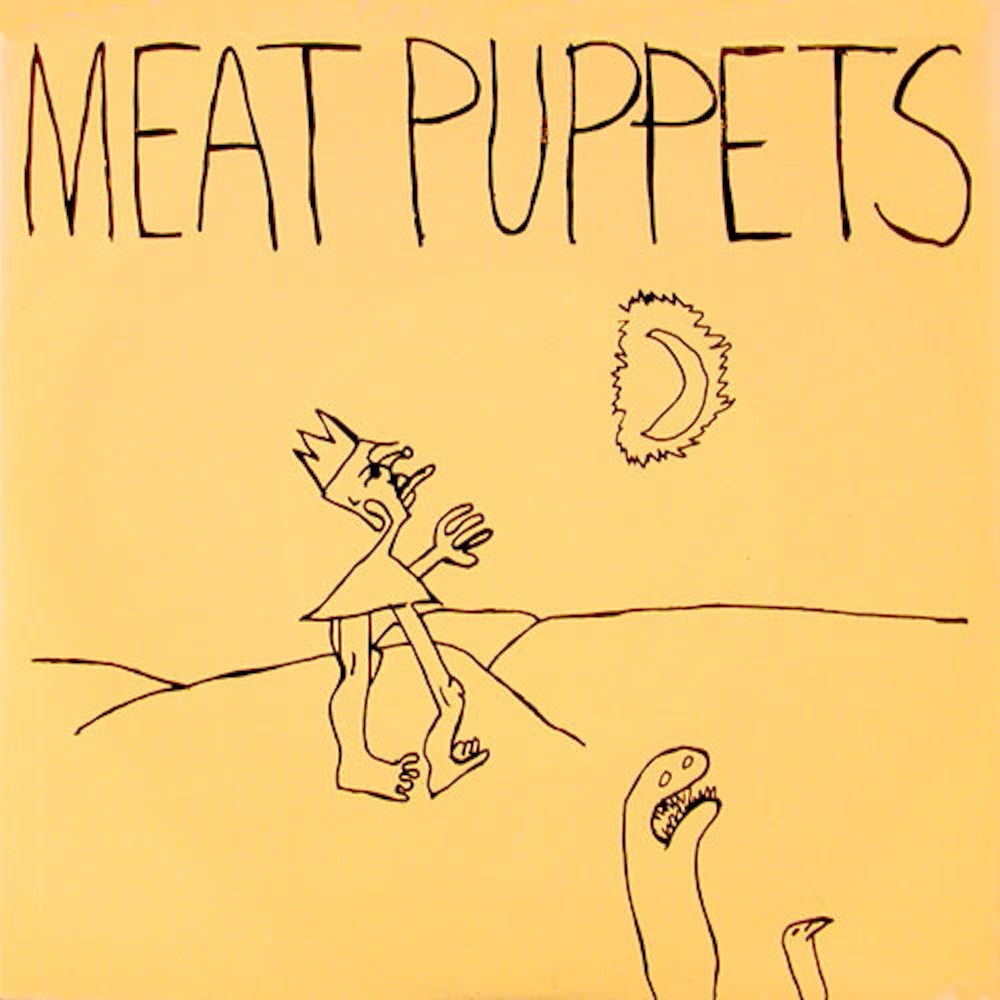
The Meat Puppets’ debut EP, released by the L.A. punk label World Imitation Records, blitzes through five songs in five minutes, a blur of sound that makes the Germs sound square by comparison. Curt Kirkwood was already writing vivid, imaginative lyrics (“I want to watch the sun burn the backs of my eyes out while my heart plays a tune”), but he was delivering them in almost completely indecipherable grunts and screams. The bluesy, intricate guitar work on “Big House” is a fleeting preview of the sound the band would develop once they started to slow down and move past hardcore.
18. Rise to Your Knees (2007)
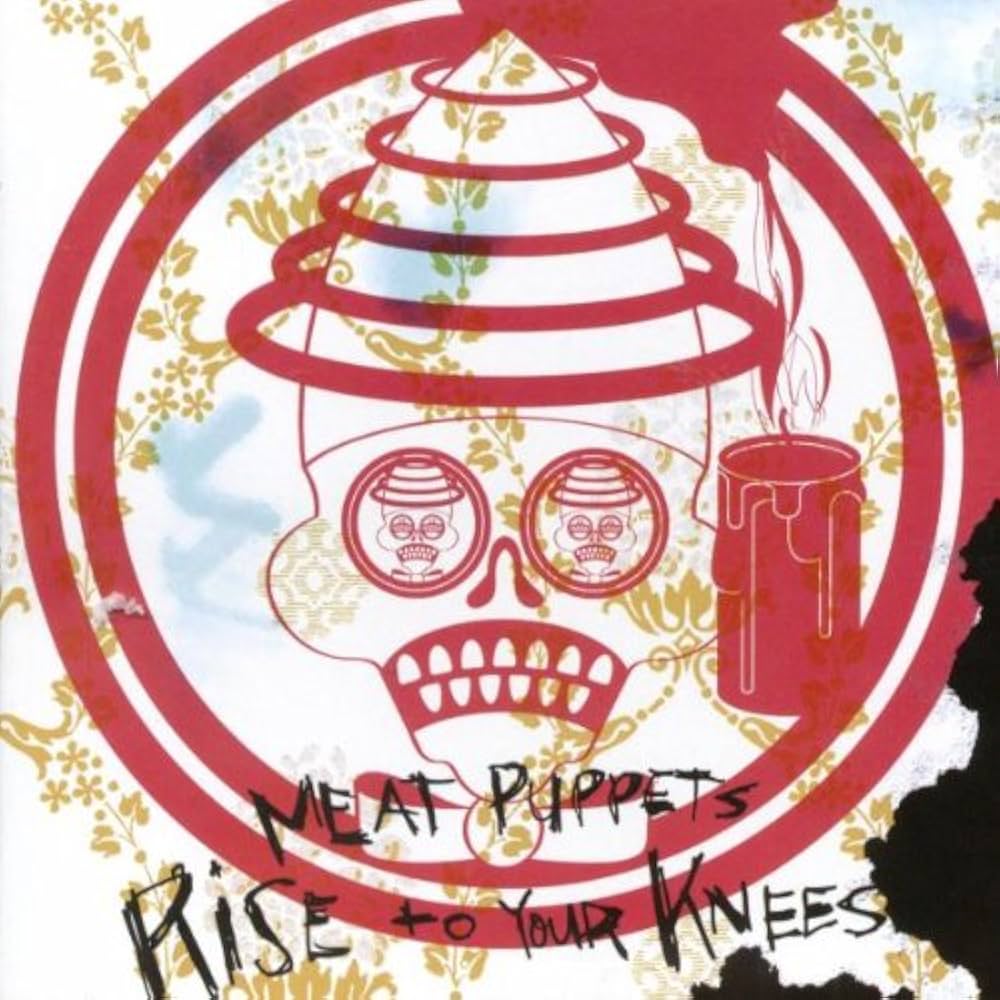
Cris Kirkwood hit rock bottom in 2003, when an argument over a parking spot escalated and he was shot and wound up serving 21 months in prison for assaulting a police officer. When he was released in 2005, though, he was clean and ready to play music again with his brother and new drummer Ted Marcus. At 67 minutes, Rise to Your Knees is the longest Meat Puppets studio album, and at some point all the leisurely midtempo songs start to blur together. Still, Cris Kirkwood’s banjo livens up “Tiny Kingdom,” and “Enemy Love Song” is an appealing throwback to the bright, glossy aesthetic of Mirage. “Compared to most reunions involving once-seminal bands, Rise To Your Knees stands tall,” Andrew Earles wrote in the AV Club review.
17. Camp Songs (2023)
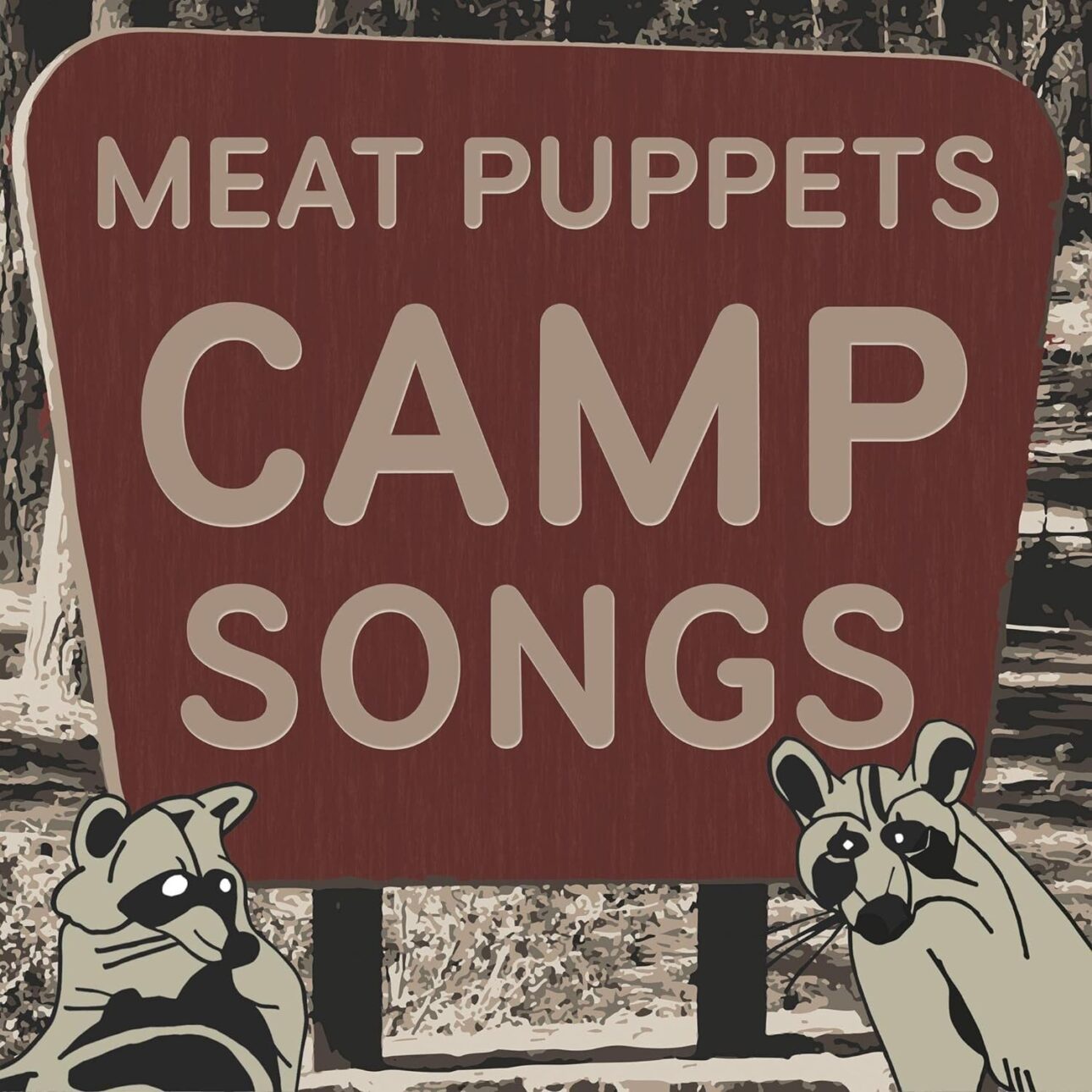
In their prime, the Meat Puppets were rivaled only by the Replacements for their reputation for unpredictable live shows that could veer wildly from tight performances of their greatest hits to antagonizing the audience with half-remembered covers. Camp Songs, recorded at shows between 1991 and 1995, consists entirely of moments when the band would launch into sludgy renditions of old country and folk songs, sort of the Meat Puppets equivalent of Having Fun with Elvis On Stage. On Camp Songs, “Amazing Grace” and Canadian folk singer Oscar Brand’s 1957 novelty song “Blinded by Turds” are treated with equal reverence.
16. Live Manchester 2019 (2022)
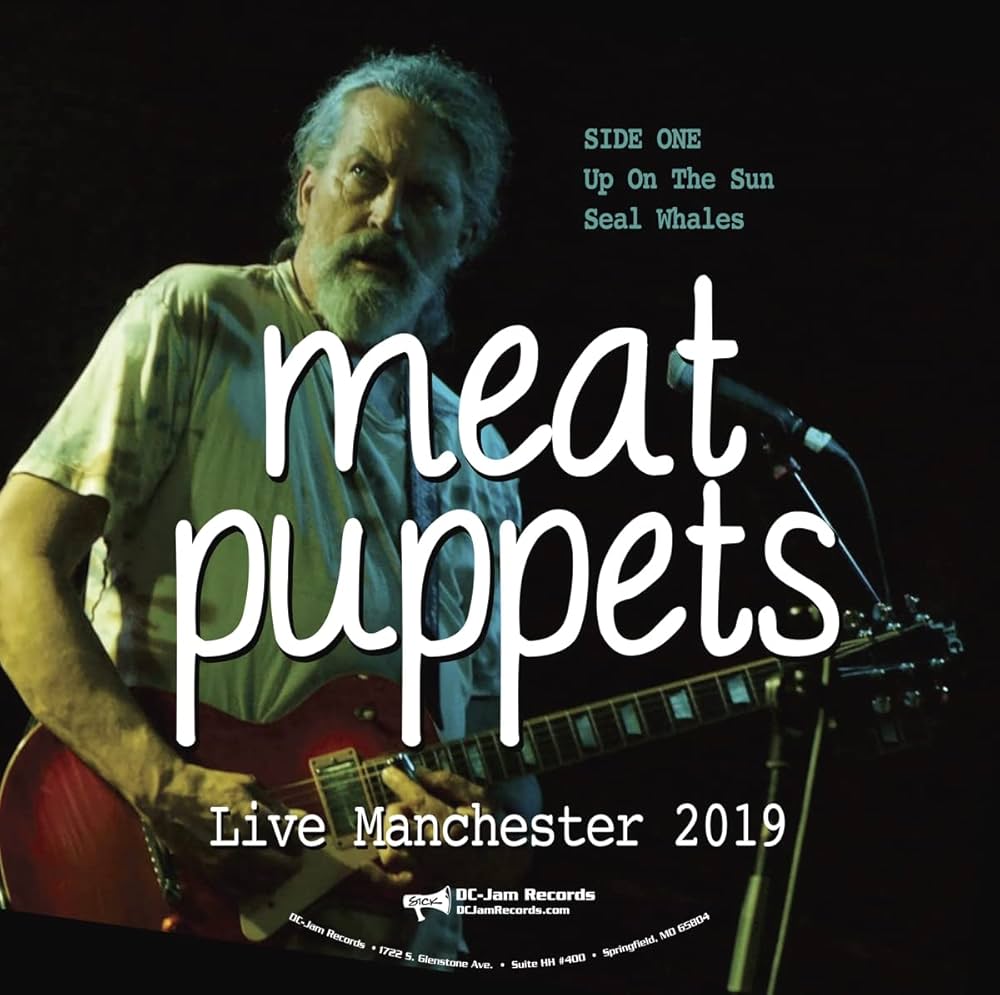
Live Manchester 2019 captures a show from the U.K. leg of the Meat Puppets’ first tour with Derrick Bostrom on drums in over 20 years. The album only features five songs from the band’s Manchester gig, so it feels more like an appetizer than an entrée. But it mostly comprises loose and lively renditions of ’80s classics, including an excellent 12-minute exploration of “Up On the Sun.”
15. Meat Puppets (1982)
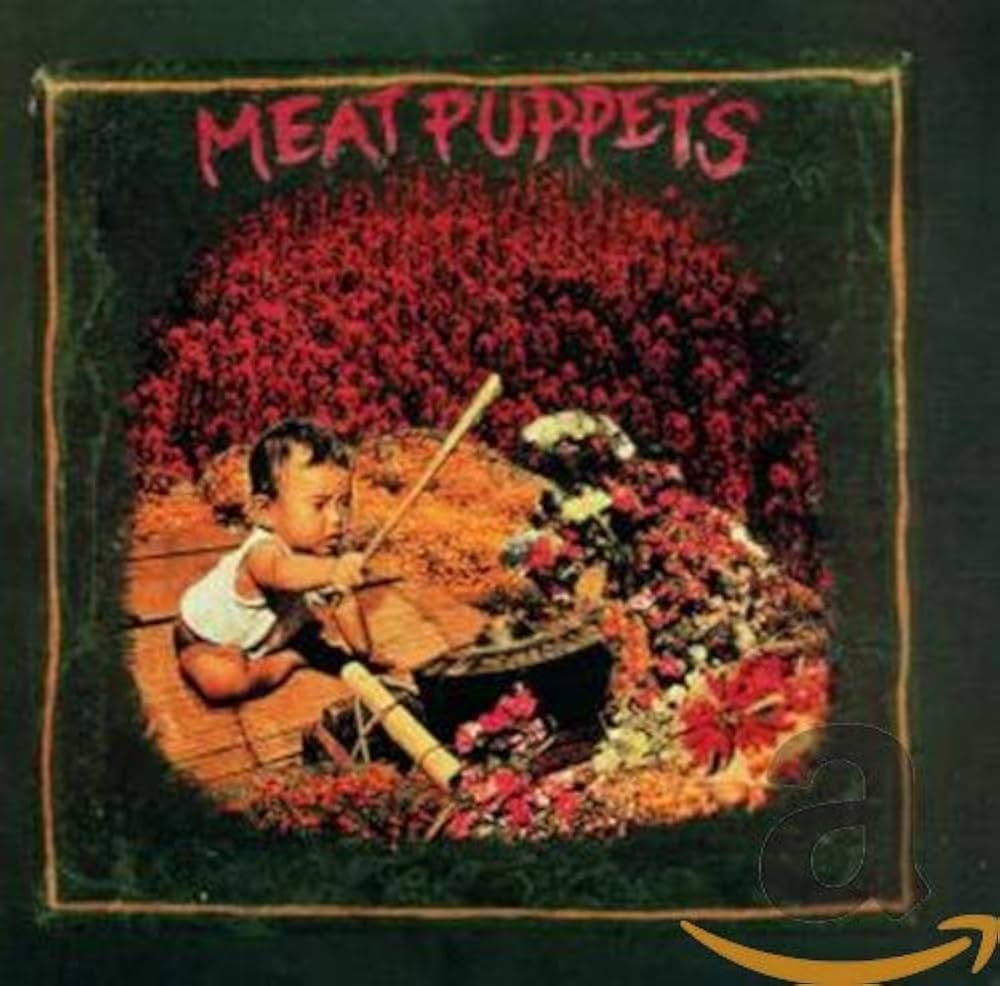
The first time the Meat Puppets recorded for SST Records and worked with the label’s in-house producer Glen “Spot” Lockett, the entire band took LSD before the sessions. Instead of making the kind of trippy jams most commonly associated with psychedelics, however, the trio made an album full of 90-second punk songs delivered with wild-eyed intensity. Two country and western covers, “Walking Boss” and “Tumbling Tumbleweeds,” signaled that the Meat Puppets had a very different musical background than the rest of the hardcore scene, but their earliest songs had a very limited palette compared to everything that came after.
14. Lollipop (2011)
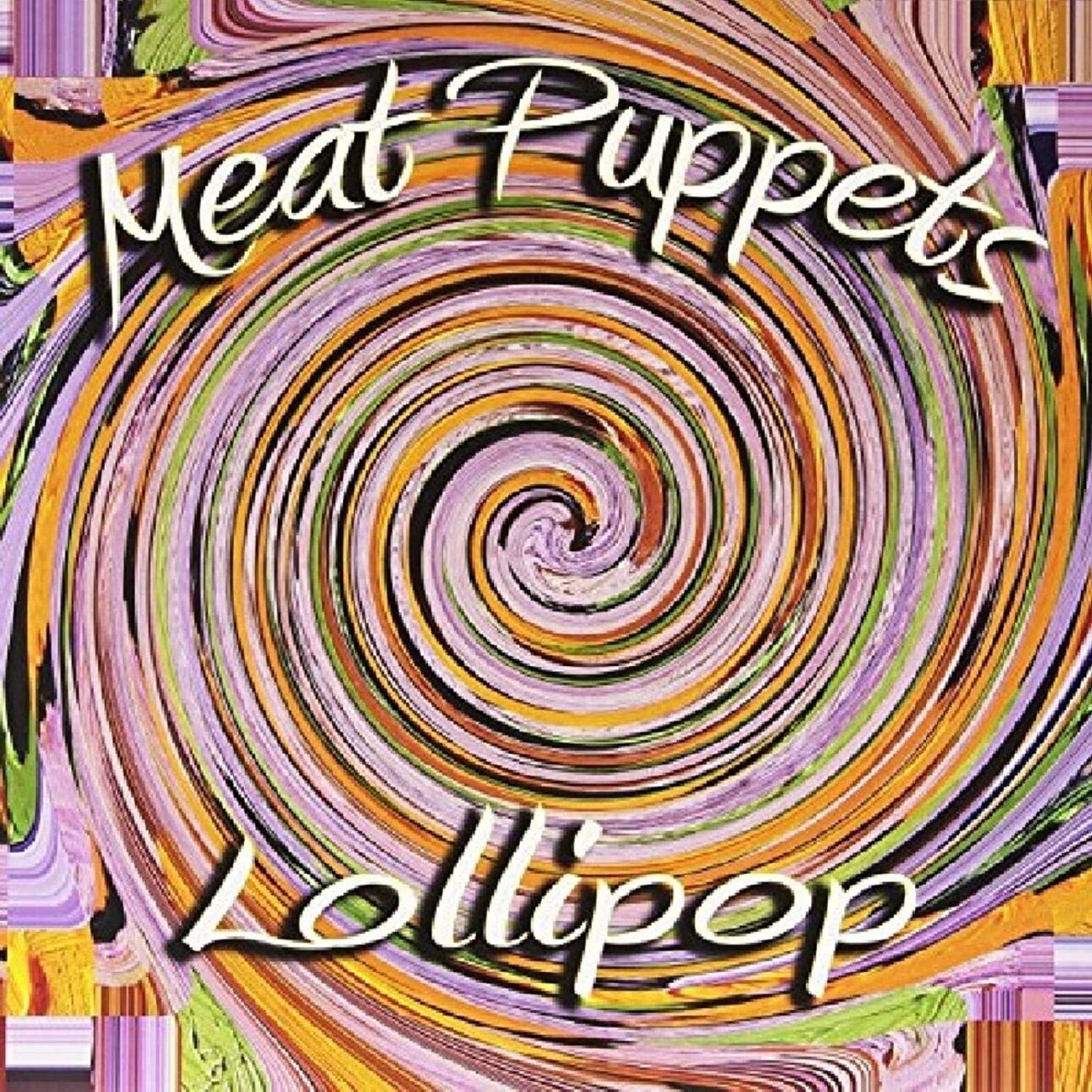
Shandon Sahm, the drummer from the Golden Lies lineup and the son of Tex-Mex music legend Doug Sahm, rejoined the Meat Puppets in 2009 and played on their next two studio albums. Several gentle acoustic songs like “Lantern” and “Amazing” are clustered together in the middle of Lollipop, a novel sequencing choice that helps give the album a satisfying arc. The highlight of the louder songs bookending the album is Cris Kirkwood’s gnarly fuzz bass sound on “Orange.” “The vocal work on Lollipop is surprisingly clean and crisp, all the huskiness and rough edges scrubbed away,” Jesse Cataldo wrote in the Slant Magazine review of the album.
13. Rat Farm (2013)
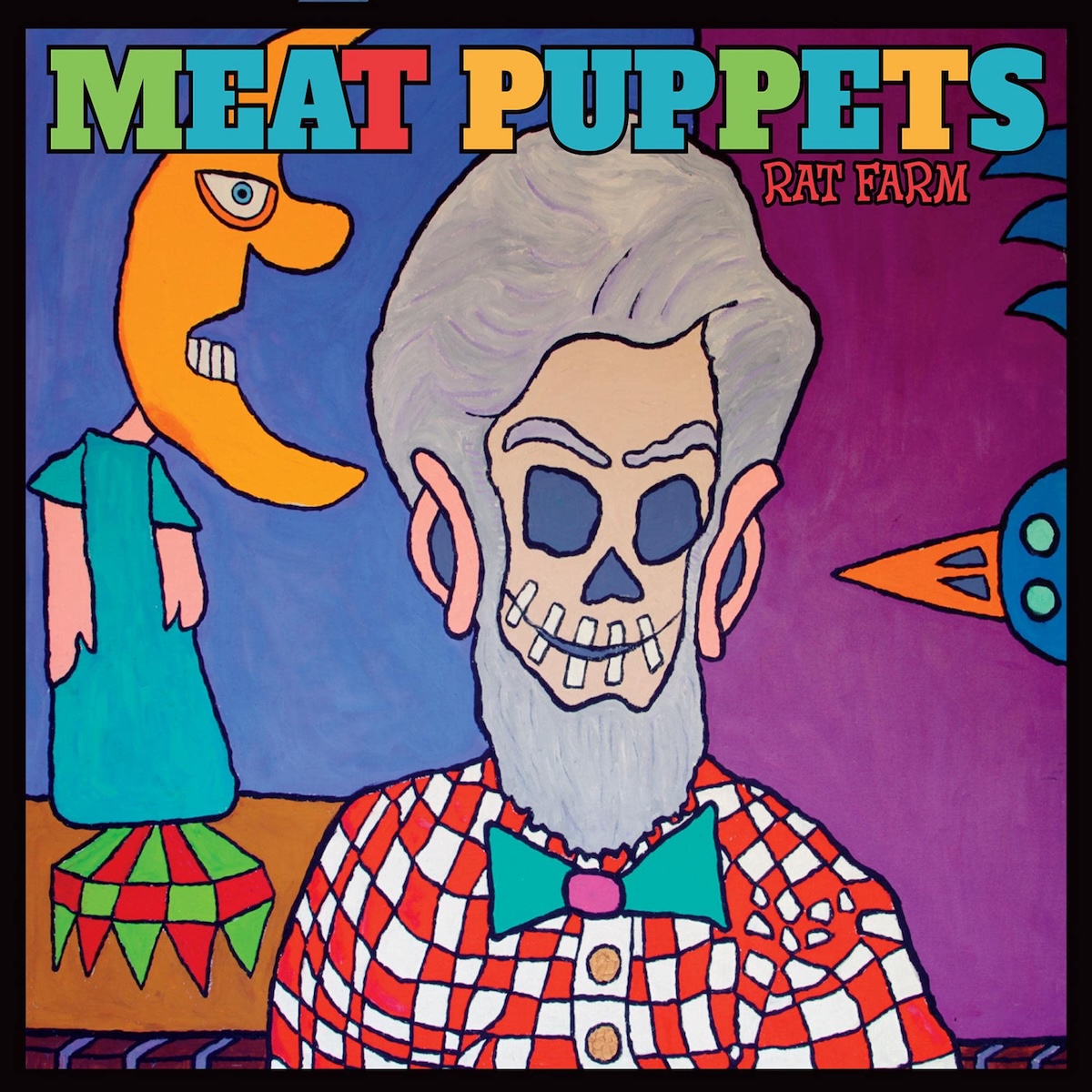
Curt Kirkwood produced all of the band’s late-period albums himself. And Rat Farm feels like the record where he really gets comfortable layering a dense web of guitars, particularly on the gorgeous “Time and Money,” the closest the Meat Puppets have ever come to sounding like the Allman Brothers Band. “You Don’t Know” also features some of the loveliest singing of the frontman’s career, and the band’s signature brotherly harmonies make the closing track “Sweet” soar.
12. Live in Montana (1999)
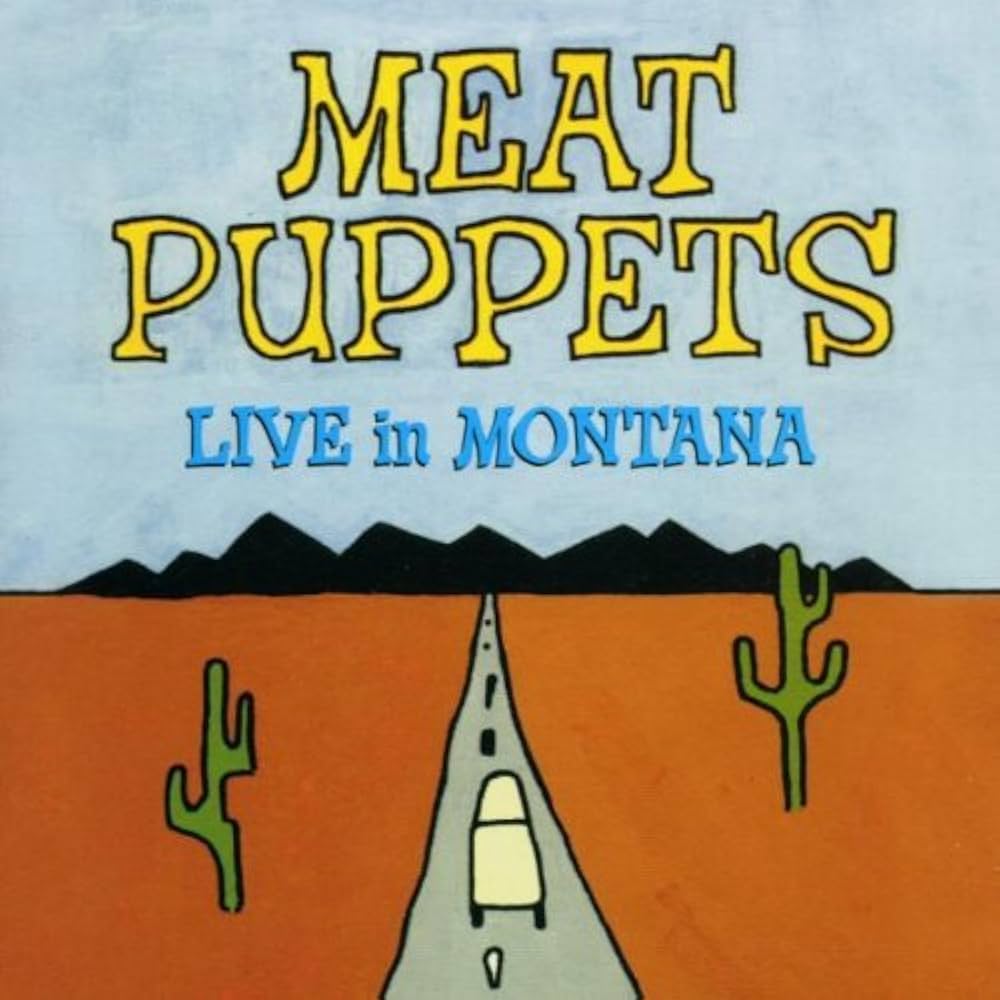
When Rykodisc released deluxe editions of the Meat Puppets’ SST albums in 1999, the reissue campaign included a live album recorded at two club shows in Bozeman and Missoula, Montana, in 1988. Live in Montana features an excellent selection of early Meat Puppets tunes including “Maiden’s Milk” and “I Can’t Be Counted On,” before the band inevitably launches into a gleefully absurd assortment of covers of UTFO, Roy Orbison, and Black Sabbath.
11. Monsters (1989)

Monsters, like Hüsker Dü’s 1985 album Flip Your Wig, was nearly the band’s major label debut before it ultimately became their final SST release. Unlike the Hüskers, though, the Meat Puppets were already seriously polishing up their sound to get ready for the big time. Their first self-produced album is surprisingly slick, and metal-leaning songs like “Attacked by Monsters” and “Party Till the World Obeys” sound like their audition for Headbangers Ball rotation. The live staple “Touchdown King” is one of the band’s greatest songs, a 6-minute epic that makes an NFL quarterback sound like the mythic hero of an ancient folk tale, but few other songs on Monsters reach similar heights. “This is really the guitar-god record Curt Kirkwood always had in him,” Robert Christgau wrote in the Village Voice review of Monsters.
10. Sewn Together (2009)
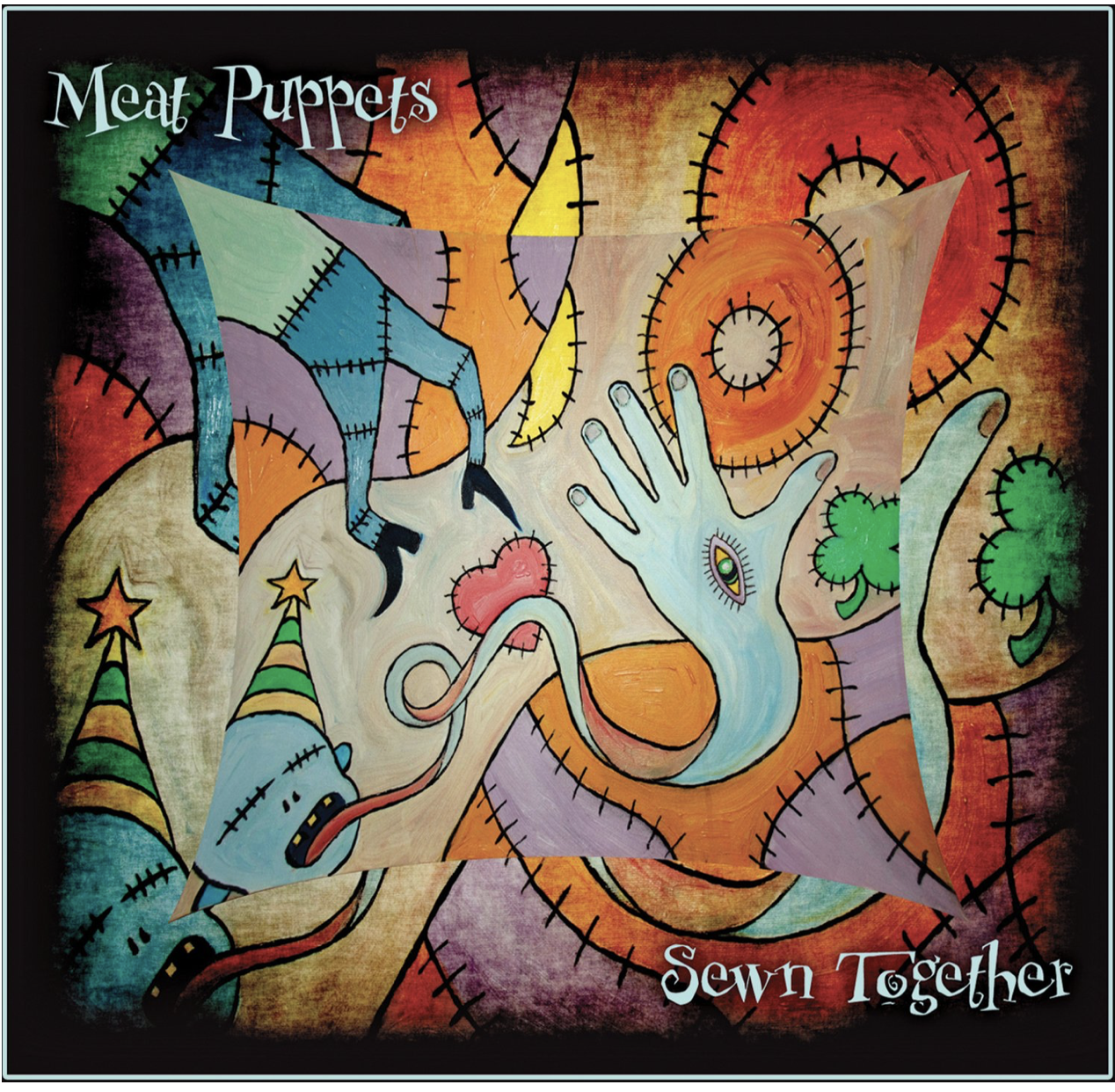
The Kirkwood brothers’ second album back together since reuniting is about 20 minutes shorter than Rise to Your Knees, and a bit more energetic as well. Sewn Together is truly a family affair, with Curt Kirkwood’s son Elmo making his recording debut, playing guitar on “Smoke.” The band also found a long-term label home, signing with the stalwart metal imprint Megaforce Records as it was beginning to diversify its roster, and remaining with the label for every subsequent studio album. “The interplay of Curt’s drowsy vocals and freaky guitar can still induce vertiginous spells,” Jon Young wrote in the SPIN review of Sewn Together.
9. No Joke! (1995)
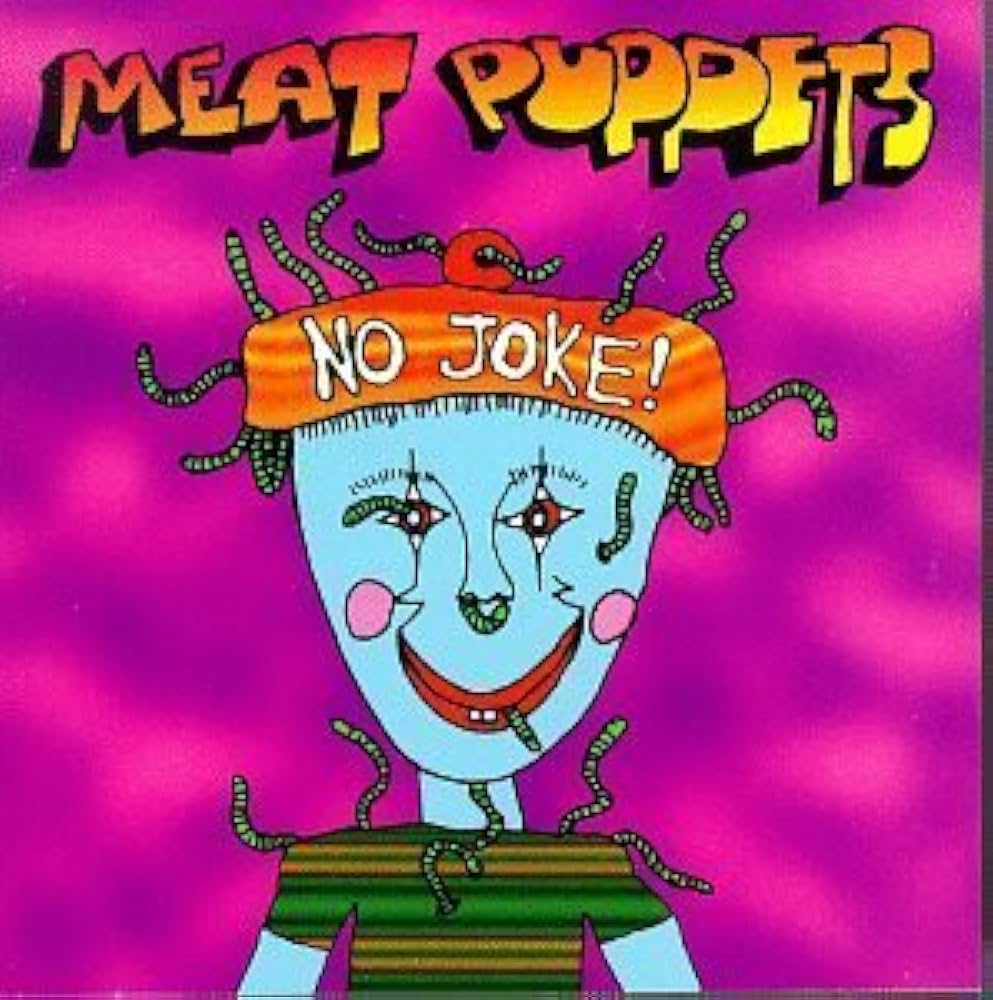
Butthole Surfers, like the Meat Puppets, were absurdist underground ’80s noisemakers who became an unlikely mainstream radio presence in the ’90s. And Surfers guitarist Paul Leary was probably the best producer the Meat Puppets ever had, working with them on two albums that beefed up the band’s sound without sacrificing any of their charming eccentricities. No Joke! suffers from feeling like a lesser sequel to Too High to Die, but there are big memorable hooks throughout, from “Sweet Ammonia” to the explosive “Scum,” the band’s last charting single. “Cobbler” is the highlight of the handful of songs written and sung by Cris Kirkwood during the band’s major label era.
8. Mirage (1987)
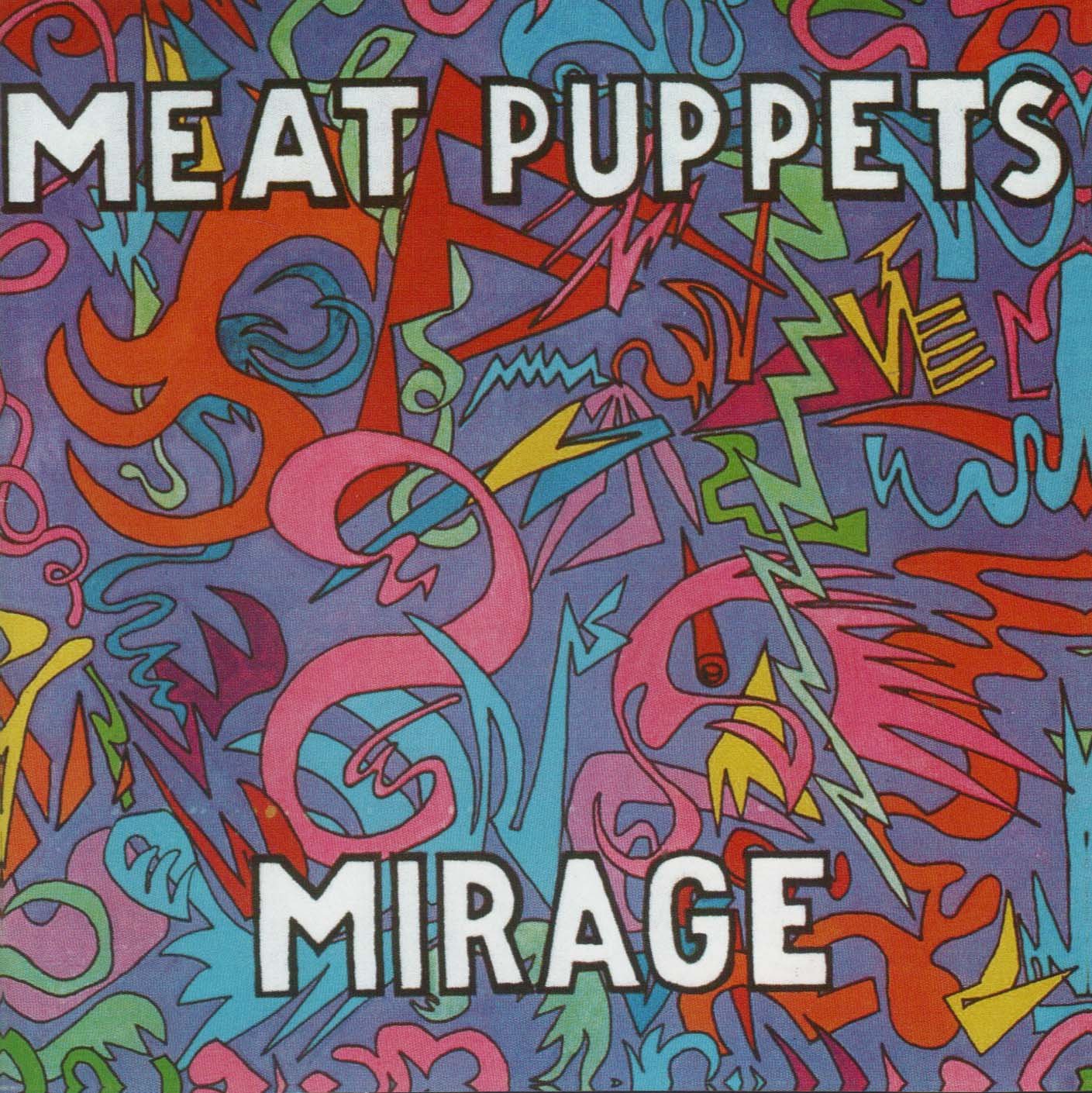
After recording three albums with Spot, the Meat Puppets hooked up with a producer with major-label experience, Steve Escallier (Little Steven, Icon), for a series of releases with brighter melodies and those big-gated ’80s snare drums. Meat Puppets sound tamed on Mirage, much as the Grateful Dead did on “Touch of Grey” the same year. The difference, of course, is that the Dead were in a position to score a crossover hit, while the Meat Puppets were making a strangely glossy soft rock record for Black Flag’s label.
7. Out My Way EP (1986)
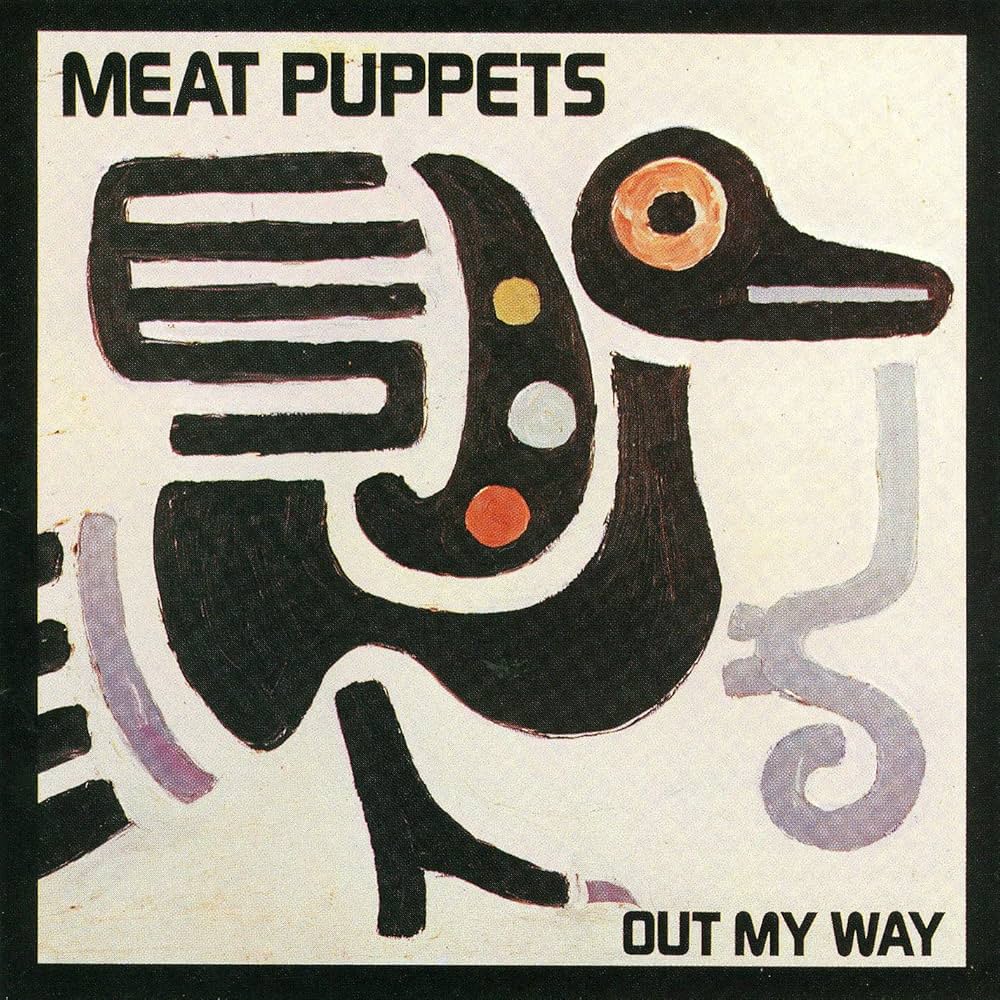
The Meat Puppets worked with Escallier for the first time on Out My Way, which featured five originals and a frenzied cover of Little Richard’s “Good Golly, Miss Molly.” The EP has a little more life in its performances than Mirage, with one of Cris Kirkwood’s most nimble basslines on “She’s Hot” and a strutting cowbell groove on the title track. It’s a little unusual for a band to put top-shelf new songs on an EP once they’ve started releasing albums, and the bonus tracks on the 1999 Rykodisc reissue make a compelling case that Out My Way easily could’ve been an excellent full-length.
6. Dusty Notes (2019)
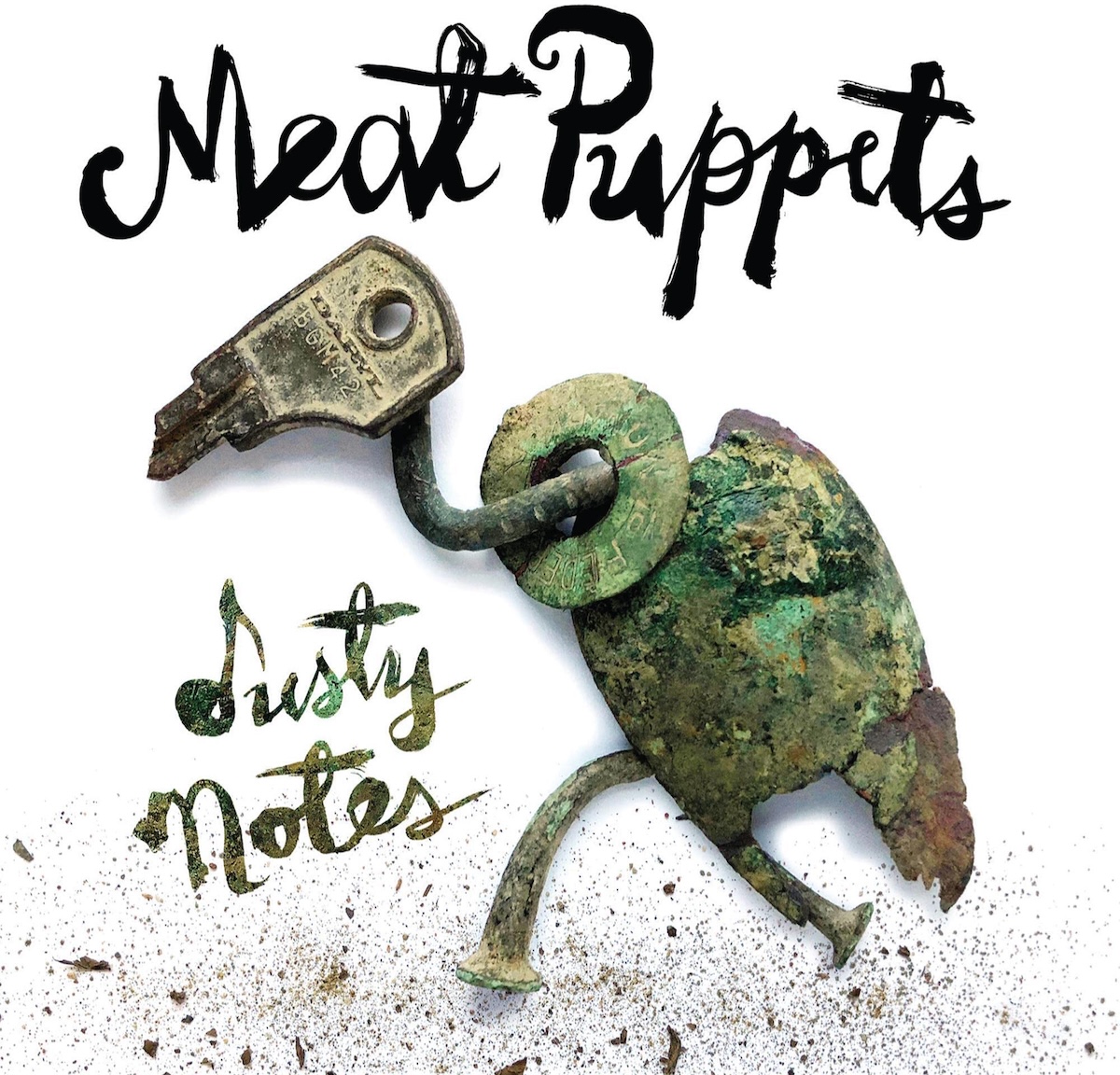
In the two decades after Derrick Bostrom stopped playing in the Meat Puppets, he remained involved in the band’s legacy, overseeing reissues of their back catalog, penning liner notes, and maintaining their internet presence. When Bostrom finally rejoined the band in 2018, it wasn’t just the original trio but an expanded five-piece lineup with guitarist Elmo Kirkwood and keyboardist Ron Stabinsky. Dusty Notes is probably the band’s prettiest record, and a cover of Don Gibson’s 1961 country hit “Sea of Heartbreak” fits right in alongside the originals. The weird and loud Meat Puppets you grew up on do make an appearance, though, making a racket on the penultimate track “Vampyr’s Winged Fantasy.”
5. Forbidden Places (1991)
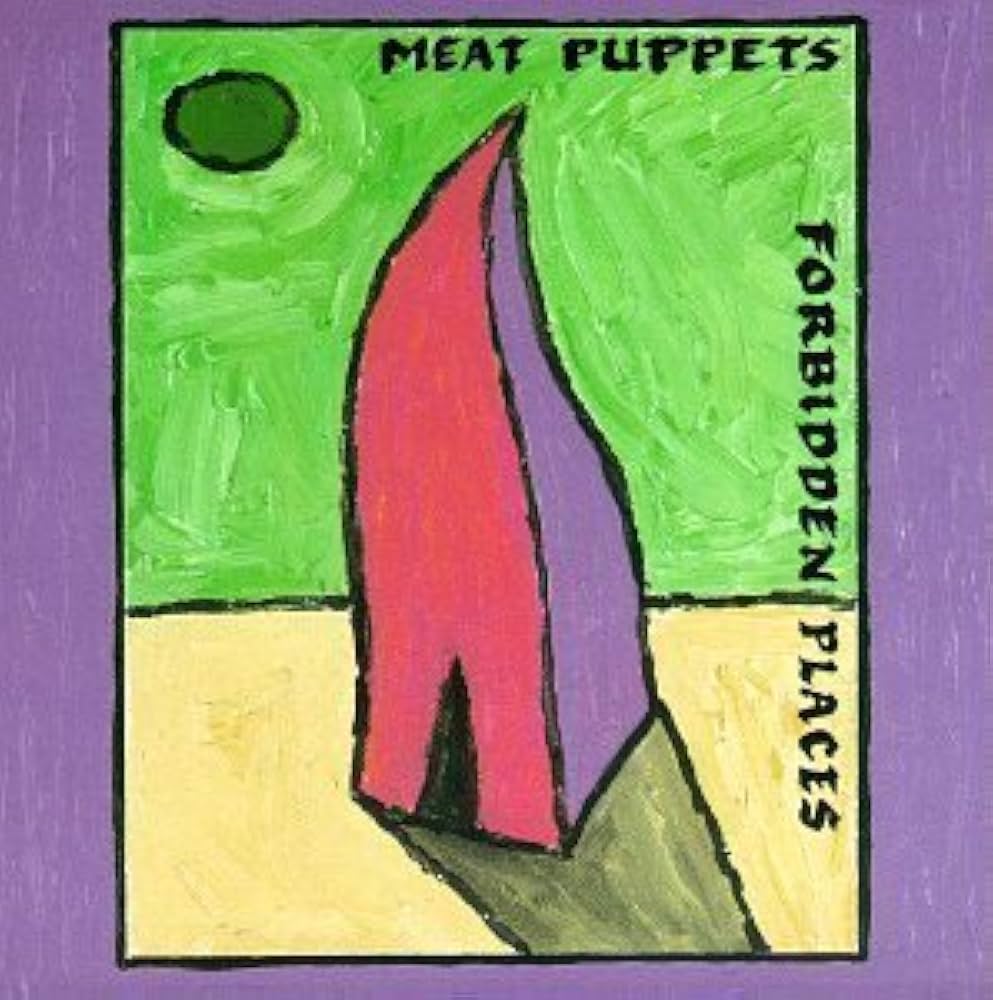
As Dwight Yoakam’s primary collaborator, Pete Anderson produced some of the finest mainstream country records of the ’80s and ’90s. And in the days before “alt-country” became an established music industry niche, Anderson was as good a choice as any to shepherd the Meat Puppets’ major label debut and help the band embrace their twangier instincts (he later also produced Curt Kirkwood’s 2005 solo album Snow). The lead single “Sam” was a tongue twister with the Kirkwoods singing the song’s verses in a rapidfire cadence, an entertaining experiment that gave the band their first hit on Billboard’s Modern Rock chart. “How many other rock bands combine accomplished guitar-boogie frenzy with melodious songwriting and those all-important pinup-boy good looks?” Gina Arnold wrote in the Entertainment Weekly review of Forbidden Places.
4. Huevos (1987)
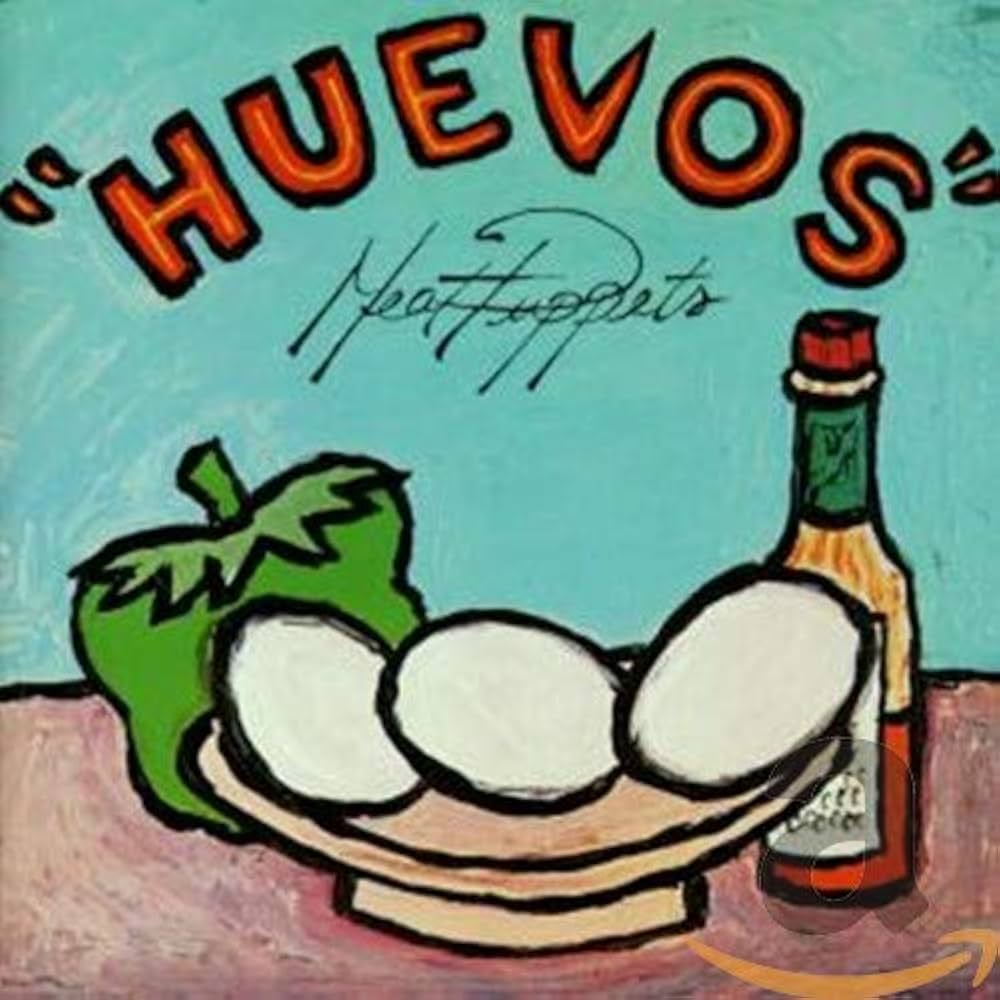
1987 is the only year that the Meat Puppets released two studio albums, and despite Escallier producing both, Huevos was a dramatic contrast from Mirage. Inspired by seeing ZZ Top live, the Meat Puppets pivoted to a hard-charging Texas boogie record, with many of the songs on Huevos recorded in one take. Curt Kirkwood’s vocals on studio albums can sometimes be a bit sedate, but he belts out some of his wittiest lyrics with unrestrained gusto on “Look at the Rain” and “I Can’t Be Counted On.”
3. Too High to Die (1994)
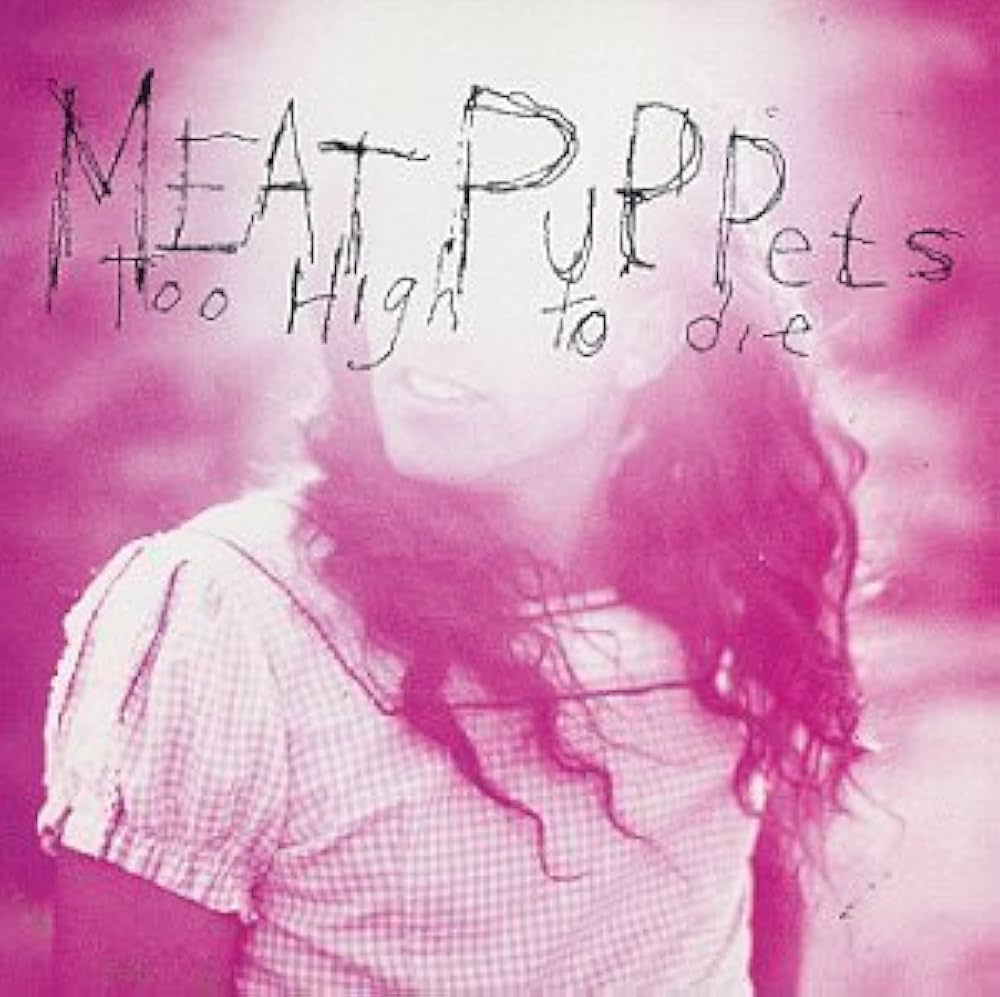
For over a decade, the Meat Puppets seemed to awkwardly stumble into something resembling a career, always taking two steps forward and one step back. And then the stars started to align and everything finally seemed to be in their favor. In late 1993, Curt and Cris Kirkwood were invited to perform three early Meat Puppets songs with Nirvana on MTV Unplugged, and as luck would have it, they’d just recorded their most accessible album. Instead of copying the grunge bands they’d influenced, the Meat Puppets sounded more like themselves on Too High to Die than they had for several albums, with rootsy singalongs like “Comin’ Down” and explosive psych rock jams like “Never To Be Found.” The anthemic and dryly funny “Backwater” landed on radio playlists alongside the Nirvana version of “Lake of Fire,” and Too High to Die became the band’s first and only gold album.
2. Meat Puppets II (1984)
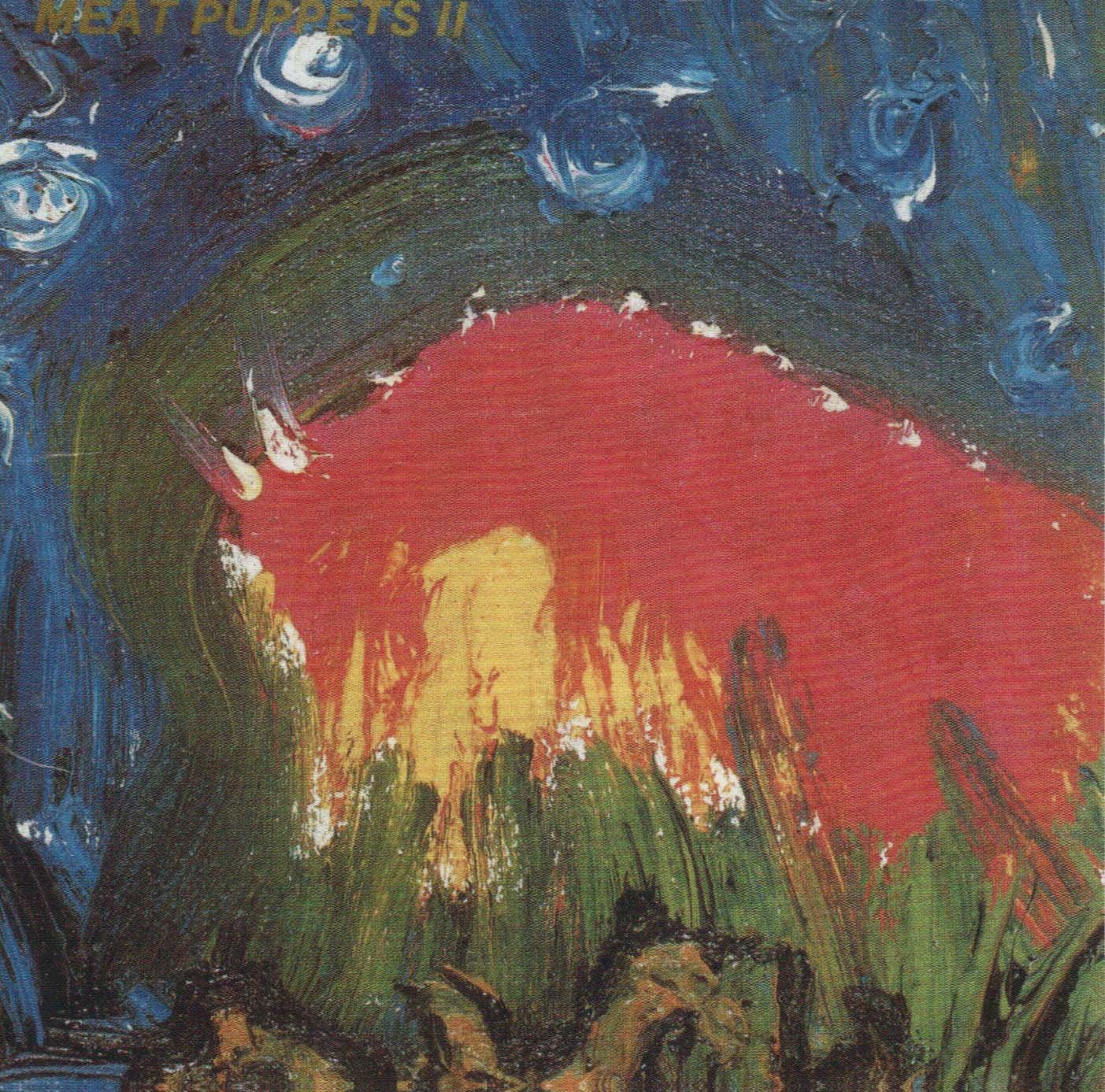
Most of the great SST bands reached a point where they outgrew hardcore and blossomed into something unique and new. You can hear the Meat Puppets arrive at that epiphany on their second album, where punk barnstormers like “New Gods” and “Split Myself in Two” sit alongside slower, more sophisticated songs like “Plateau.” II is best known for the three songs Kurt Cobain sang on MTV , but remarkable songs like “Lost” and “The Whistling Song” were just pouring out of Curt Kirkwood. The rest of the SST staff were highly skeptical of the Meat Puppets when Joe Carducci signed the band. The label dragged its heels with II, releasing it a whole year after it was recorded, but the album quickly started to build an enduring cult. “Meat Puppets II is one of the funniest and most enjoyable albums of 1984,” Kurt Loder wrote in the Rolling Stone review of the album.
1. Up on the Sun (1985)
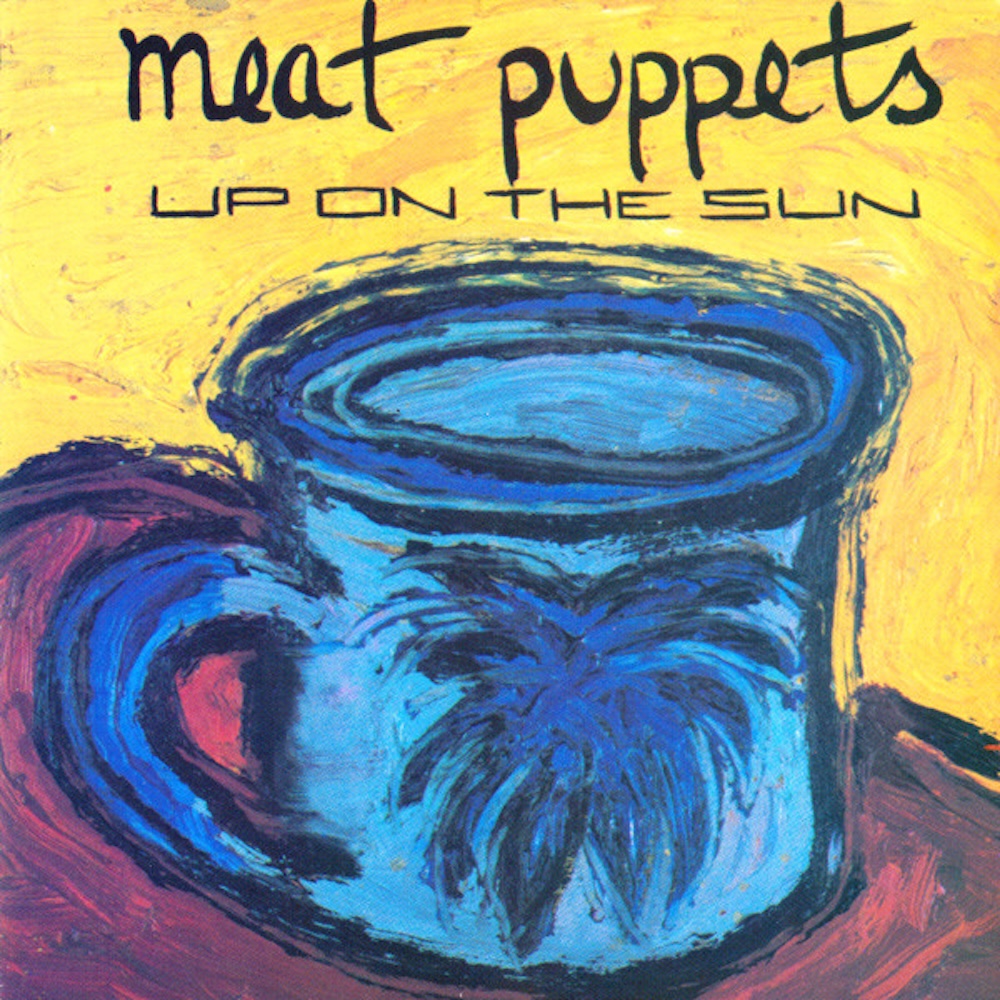
Just as Meat Puppets II was a huge step forward for Curt Kirkwood’s songwriting, Up on the Sun represented a quantum leap for the band’s musicianship as they became one of the most talented and original bands on the American underground scene. The guitars and bass chase each other around in dizzying syncopated patterns, and sometimes you barely notice that crowd-pleasers like “Maiden’s Milk” and “Seal Whales” have no words because they’re overflowing with instrumental hooks. When Curt Kirkwood does sing, he often seems to be describing abstract dreamscapes, even on the masterful title track, a sweetly surreal song written for his young daughter.
To see our running list of the top 100 greatest rock stars of all time, click here.
